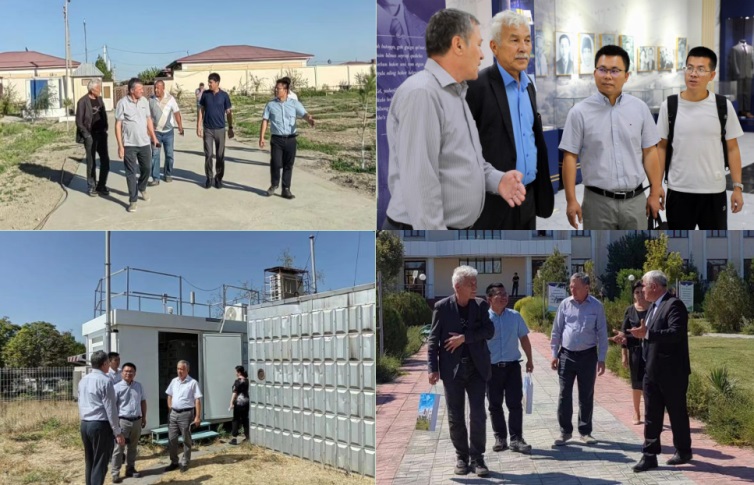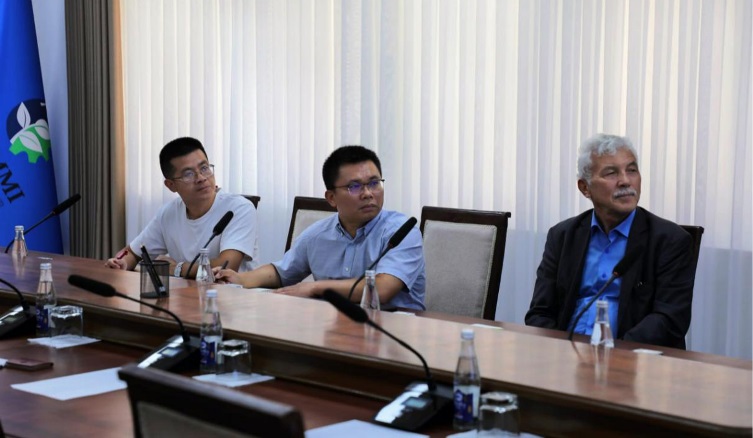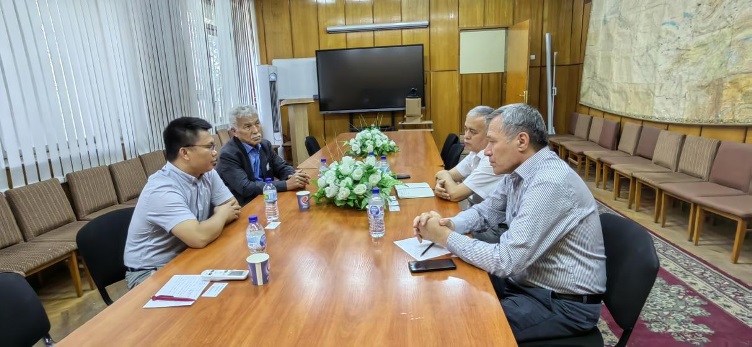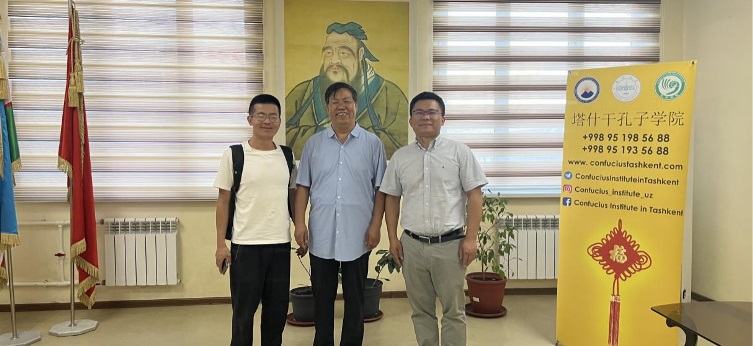From September 16 to 21, at the invitation of Bakhadir Mirzaev, President of the TIIAME National Research University of Uzbekistan, Professor Huang Zhongwei, Vice President of the College of Atmospheric Sciences of Lanzhou University, and Professor level Senior Engineer Xie Jianrong, led a delegation to Uzbekistan for exchange visits to discuss the site selection and construction of the 'the Belt and Road' environmental and climate observation network in Uzbekistan.
During the visit, Professor Huang Zhongwei and his delegation visited TIIAME National Research University, Bukhara Institute of Natural Resource Management, Uzbekistan Institute of Hydrology and Meteorology, and our Confucius Institute in Tashkent. They also visited multiple meteorological stations and national field scientific observation stations in Tashkent and Bukhara.

Professor Huang Zhongwei and his delegation met with Bakhadir Mirzaev, President of TIAME National Research University, and Amonov Mansur, Institute of Irrigation and Agricultural Mechanization at Tashkent National Research University.Both sides respectively introduced the historical development, disciplinary construction, talent cultivation, international student enrollment, and international influence of TIIAME National Research University and Lanzhou University, and looked forward to strengthening scientific research cooperation in the fields of ecological environment, air pollution, water resource management and utilization, arid agriculture, water-saving irrigation, etc..In particular, Tashkent and Bukhara, two sand and dust storm field scientific test stations of the 'the Belt and Road' environment and climate observation network, have been established in Uzbekistan to strengthen cooperation and research on sand and dust storms, air pollution, water resources development and utilization, ecological environment and other aspects in key areas of Central Asia, so as to escort the smooth implementation of the 'the Belt and Road' initiative and disaster prevention and mitigation in countries and regions along the Belt and Road.

Uzbekistan has a severely arid continental climate, with cold winters and continuous rain and snow; Summer here is hot, dry without rain, with obvious hot days and cool nights. In arid areas, natural disasters are frequent, and the ecological environment is fragile. The ability to observe environmental climate urgently needs to be strengthened. During the meeting between Professor Huang Zhongwei and Imomov Shavkat Jakhonovich, Director of the Bukhara Institute of Natural Resource Management at TIIAME National Research University, the two sides reached a consensus on future collaborative research on salt dust storm transmission and human health in the Aral Sea region, ecological environment governance, vegetation planting in saline alkali land in arid areas, ecological agricultural development in arid areas, water resource management and water-saving irrigation.
During the meeting with Bakhriddin Nishonov, the director of the Uzbekistan Hydrometeorological Service Center and the Hydrometeorological Research Institute, the two sides reached a consensus on cooperation in air pollution and dust storm monitoring technology, inversion methods, early warning and forecasting, and plan to jointly develop research by signing a memorandum of cooperation. By applying for international cooperation projects, exchanging and cultivating technical personnel, and exchanging visits among researchers, we will strengthen comprehensive cooperation in areas such as heavy air pollution monitoring, salt dust storm transmission and tracing, and the development and improvement of models for air pollutant forecasting.

Professor Huang Zhongwei and his delegation also visited the Confucius Institute in Tashkent, Lanzhou University, and had a meeting with the dean, Yang Shihu. They learned about the basic situation of Lanzhou University's faculty, office, enrollment, Chinese language teaching and training at the Confucius Institute in Tashkent, and hoped to use our existing foundation at the Confucius Institute in Tashkent to further strengthen cooperation with the National Research University of Uzbekistan, the Hydrometeorological Service Center and Meteorological Research Institutes and other units.

The global governance of climate change has transcended the scope of basic natural science research and is an important component of national security barriers. It is also a necessary path to build a community of human and natural life and promote green and sustainable development. The countries along the 'the Belt and Road' have complex environment and climate and frequent natural disasters, which pose great challenges to the co construction of ecological civilization and the governance of climate change under the increasingly severe international situation.Lanzhou University is located in the strategic place of China's opening to the west and the golden channel of the Silk Road. It is the highland of scientific research innovation and talent training in the field of global climate change. To build the 'the Belt and Road' environmental and climate observation network, it not only aims at the world's cutting-edge scientific issues, but also serves the construction of ecological security barriers in the west and the 'the Belt and Road' initiative. Lanzhou University has proposed a plan to improve the environmental perception of the 'the Belt and Road' region, help countries cope with climate change, improve the level of comprehensive environmental governance, and develop the 'Green Silk Road'.
